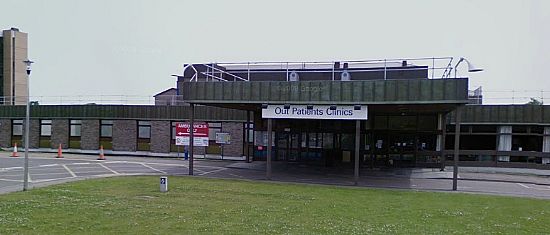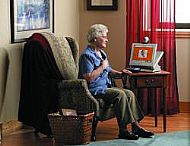 Heart to Heart | sitemap | log in Heart to Heart | sitemap | log in
|
 |
||
| This is a free Spanglefish 1 website. | ||
The Heart to Heart BlogThe house rules for this blog are simple - be polite, curteous and respect the views of others at all times. ___________________________________________________ NHS Must Preserve The Human Touchby John - 23:01 on 04 February 2014
[Ed:- This article was the ‘Leader’ in the Scotland On Sunday of the 2nd February 2014 It refers to NHS Scotland’s proposed ‘Cuts In Appointments’ as featured in our News section.
The best doctors are those who treat the whole patient, rather than just treating a broken bone or a tumor or a disease. They see a patient not as a list of symptoms, but as a human being. They listen attentively and are alert to body language, tone of voice and general demeanor. They soothe fears and, where possible, provide reassurance. They are exemplars of their profession, and they are one of the reasons why most people’s experience of our National Health Service is a positive one. At its best, the NHS is a
The move to cut back on outpatient appointments at Scottish hospitals is doubtless an effective way of saving money. But it comes at a price that is harder to put a figure on – a potential cost in compromised patient care. One particular concern is that patients – especially the elderly – often have more than one thing ailing them. A face-to-face consultation allows a skilled medical professional to pick up potential signs of other problems that may be unrelated to the reason for the appointment. The chances of these being picked up in the course of a telephone or video conversation about a specific problem are much reduced. Empathy, kindness and the caring touch are also much harder when the communication is by electronic means. Communications technology has an important part to play in modern medicine –particularly in more remote areas such as Scotland’s island communities. But it cannot take the place of the most basic form of interaction between a consultant and a patient. Source: Scotland On Sunday
Add your comment Please note that whenever you submit something which may be publicly shown on a website you should take care not to make any statements which could be considered defamatory to any person or organisation. |    |
|
 | ||

 people-centered organisation with a human, caring touch and a good bedside manner. That is why it is a much loved – and fiercely protected – national institution. And it is hard to see how the proposed changes we describe in our news pages today can do anything other than threaten this hard-won esteem.
people-centered organisation with a human, caring touch and a good bedside manner. That is why it is a much loved – and fiercely protected – national institution. And it is hard to see how the proposed changes we describe in our news pages today can do anything other than threaten this hard-won esteem. Can a telephone or video consultation really be as effective as a face-to-face meeting with a living, breathing, corporeal patient? Can it really be as accurate at picking up subtle signs and symptoms that may be relevant to that patient’s condition? If not, then how can we justify this in our hospitals?
Can a telephone or video consultation really be as effective as a face-to-face meeting with a living, breathing, corporeal patient? Can it really be as accurate at picking up subtle signs and symptoms that may be relevant to that patient’s condition? If not, then how can we justify this in our hospitals?